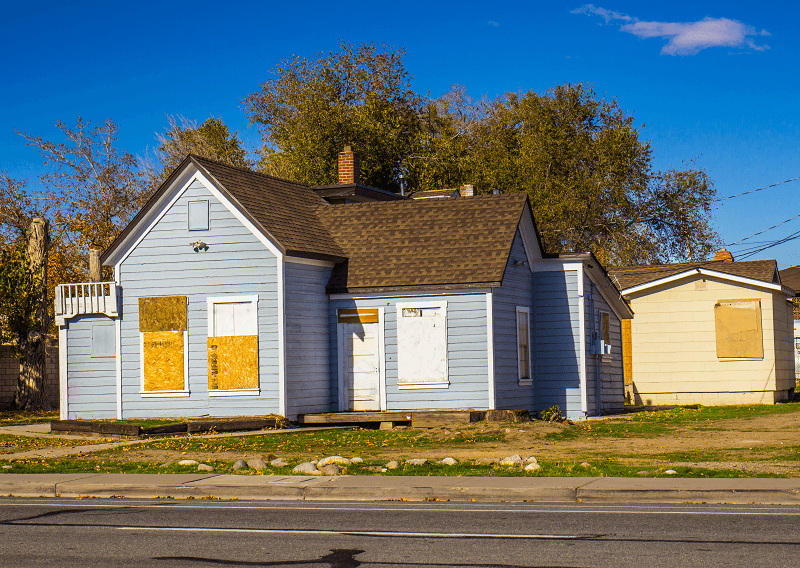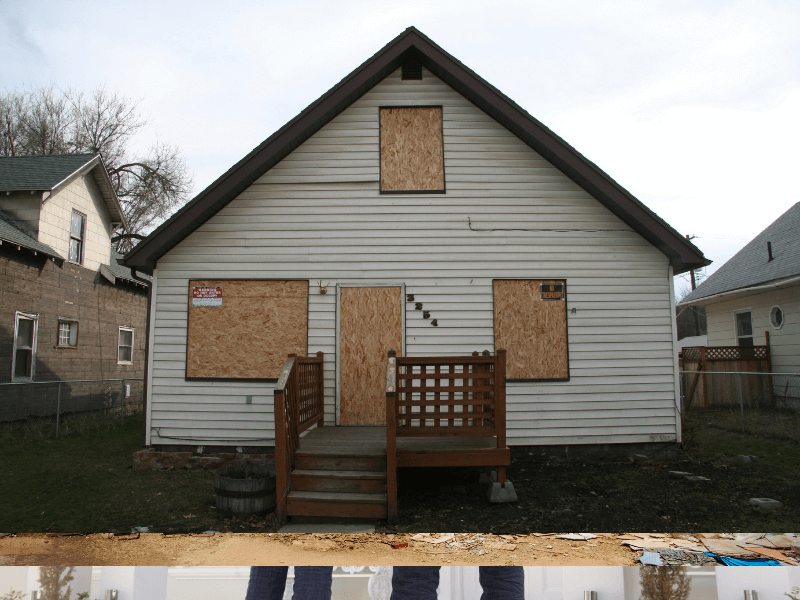
If you’re selling a house in New Jersey, it’s important to know if there are any code violations that need to be addressed. Code violations can range from minor issues such as an unkempt lawn or overgrown shrubs, to more serious issues like plumbing and electrical problems. Ignoring code violations can delay the sale of your home or even lead to hefty fines. In this article, we’ll discuss how to find out if you have code violations on your property and what steps you can take to rectify them before listing your home for sale.
Selling a House With Code Violations: What You Need to Know
Selling a house with code violations can be tricky, but it doesn’t have to be an insurmountable obstacle. As a seller in New Jersey, understanding the regulations and how to rectify any associated problems can help make the sale smoother.
Firstly, let’s explain what a code violation is exactly. A code violation is a breach of local, state or municipal rules and regulations. In New Jersey, these rules are enforced by the Department of Community Affairs (DCA). Common violations include issues such as missing permits, lack of occupancy or inadequate maintenance.
To find out if your house has any code violations before you start the sale process, you should contact the local code enforcement office or DCA. You may also be able to search for any violations through public records.
If your house does have a code violation, it’s important to address it quickly in order to avoid potential fines and other legal issues. Depending on the severity of the infraction, you may need to hire a licensed contractor to fix the issue or seek the advice of an attorney.
It’s also important to keep any potential buyers informed about code violations. This will allow them to make an informed decision and decide if they are willing to take on any additional costs associated with fixing the problem. It may be necessary to reduce your asking price to compensate for any code violations in order to attract buyers.
Different Types of Code Violations
As a homeowner looking to sell your house in New Jersey, you need to be aware of the different types of code violations that can affect your sale. These are broken down into two categories: minor and major violations.
Minor code violations are administrative or zoning issues that need to be remedied before a property can be sold. These include not having the right permits, failing to have proper inspections, or other minor paperwork errors. These issues can usually be resolved by meeting with local officials and paying any required fines or fees.
Major code violations are more serious and typically require some amount of repair in order to bring a property up to code. These may include structural problems, non-compliance with building codes, or health and safety hazards. Depending on the severity of the violation, it can be more expensive to repair these issues than minor violations.
- Here are some examples of common code violations:
- Unpermitted Construction
- Overcrowding
- Building Code Violations
- Structural Problems
- Fire Safety Deficiencies
- Health and Sanitation Issues
- Inadequate Maintenance or Repair Work
- Expired Permits or Licenses
- Zoning Regulations Non-Compliance
- Electrical Hazards
How to Find Out if You Have Code Violations
If you are not sure whether your property has any code violations, it is best to contact your local municipality or county government office. They can provide you with the necessary information on any current or past violations that may affect your property sale. Additionally, you can research any applicable county or city codes that may affect your property sale.
You may want to consider hiring an inspector to provide a comprehensive review of your home and property. This can help identify any potential code violations so that you can address them before listing the house for sale. The inspector will be able to look at all aspects of the property, from the roof to the foundation, and provide you with a detailed report on any issues they find.
Here are some ways to go about preparing for a home inspection.
It is important to take a proactive approach and address any code violations before listing the house for sale. If you find that there are violations, it is best to get them addressed before putting your home on the market. This will ensure that potential buyers don’t see any potential issues with the property and can give you an advantage in the sale.
What Happens if You Have Code Violations
When it comes to selling a house with code violations in New Jersey, there are certain steps that must be taken. Homeowners in the state are required to adhere to local building codes, and failure to do so can result in fines, citations, and other legal repercussions.
When a code violation is discovered by a local official, the homeowner will be notified and given a timeline to bring their property into compliance. Depending on the municipality, this can range from several weeks to six months. If you fail to make the required improvements within that time period, you could face extensive fines or even criminal charges.

What To Do If You Have Code Violations
There is a complex process involved when selling a house with code violations in New Jersey. When you are ready to list your home, it is important to make sure that all of the code violations have been rectified ahead of time. This can be a very lengthy process and could delay or put an end to the sale, depending on the severity of the violations.
The first step in addressing code violations is to find out if there are any. You can do this by contacting your local municipality or performing a search on the New Jersey Department of Community Affairs website. Once you have determined what violations, if any, exist, it is important to make sure they are addressed and corrected prior to listing your home.
The process of correcting code violations varies from municipality to municipality, but generally involves submitting an application and filing for a permit. You may be required to hire a qualified professional or contractor to make the necessary repairs in order for the violations to be corrected. Depending on the nature and severity of the violation, it could take days or weeks to secure the necessary permits and make the required repairs.
Once all of the violations have been addressed, it is important to provide potential buyers with documentation that shows that all of the code violations have been rectified. This will help ensure a smooth sale process and give buyers peace of mind when making their purchase decision.
Selling a house with code violations in New Jersey can be an arduous process, but having all of the necessary paperwork and documentation ready ahead of time will make it much easier. It is important to take the time to research any potential code violations and correct them before you list your home. Doing so will save you valuable time and help ensure a smooth transaction.
How to Rectify Code Violations
Once you have identified any code violations, it is important to take action immediately in order to rectify them properly. First, contact your local municipality or county government office to discuss the specific violation(s).
They should be able to provide you with information on what the violation is and how it can be fixed. Most code violations require specific items to be completed, such as installing a smoke detector or making structural changes, in order to bring the property into compliance.
In some cases, you may also need to obtain building permits from your local municipality. Here is how you can go about getting unpermitted work permitted.
Once all necessary steps have been taken to rectify any issues, contact the office again and they will inspect your work and issue a Certificate of Compliance upon completion. This certificate must then be provided to potential buyers before they purchase the home in order for them to understand that all code violations have been properly addressed and fulfilled.
It is important to remember that it is illegal in New Jersey to sell a house with code violations and any failure to rectify them can result in costly fines. Therefore, it is important that you take all of the necessary steps outlined above in order to ensure that your house meets all applicable codes before attempting to sell it.
Selling a house with code violations does not have to be an incredibly difficult process; however, it is important for sellers to understand their obligations and take the necessary steps required in order to properly address any existing issues. By taking the time to properly rectify any code violations, you will be able to rest assured knowing that your home has been brought up-to-code and is ready for sale!
Final Takeaways
Selling a house with code violations can be a complicated process. Researching the issue and understanding what needs to be done can help ensure that the sale goes smoothly. However, if you’re feeling overwhelmed, selling to one of the cash home buyers in New Jersey can provide an easy solution and eliminate the hassle of finding a buyer who is willing to purchase a home with code violations.
If you need to sell a house fast in Cherry Hill or Camden with code violations, Problem Property Pals can help! We buy houses in Camden, Cherry Hill and throughout New Jersey. We can buy your house in as-is condition and help you avoid the costly fines associated with unaddressed code violations. Contact us today to learn more about our services or to get a cash offer.

 Call Us!
Call Us!